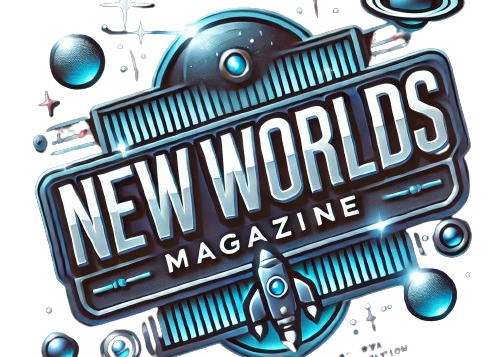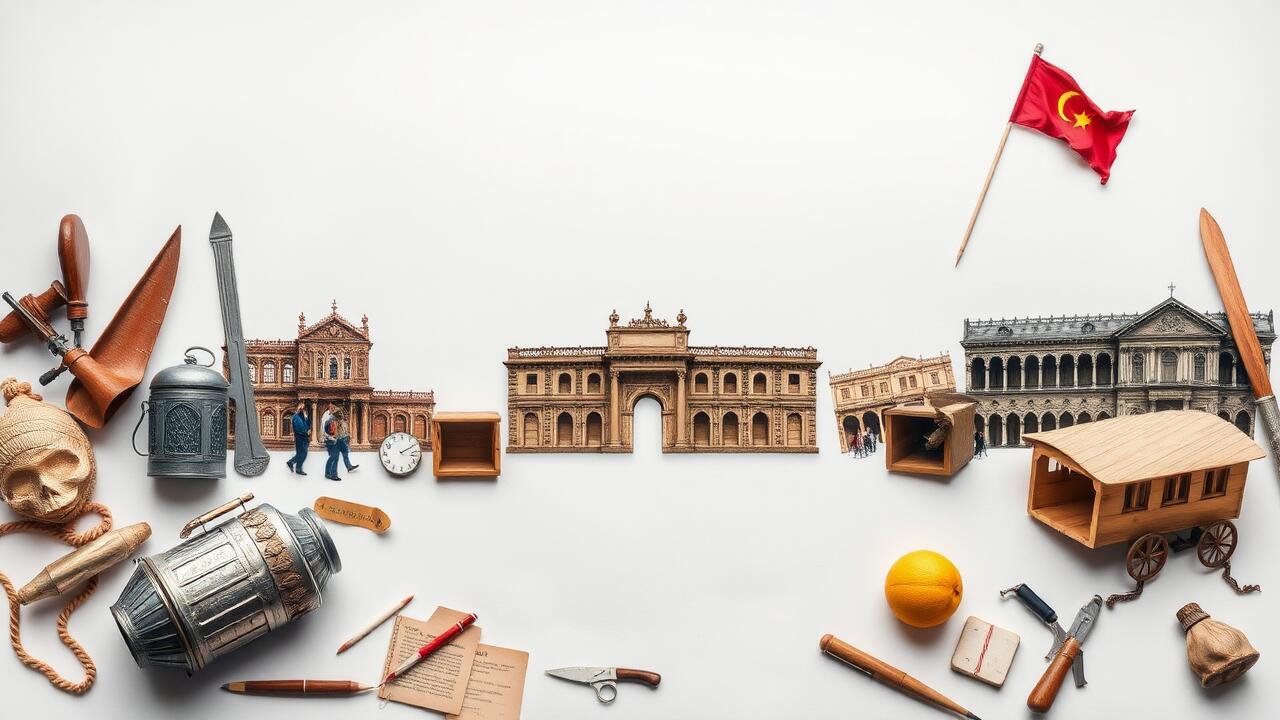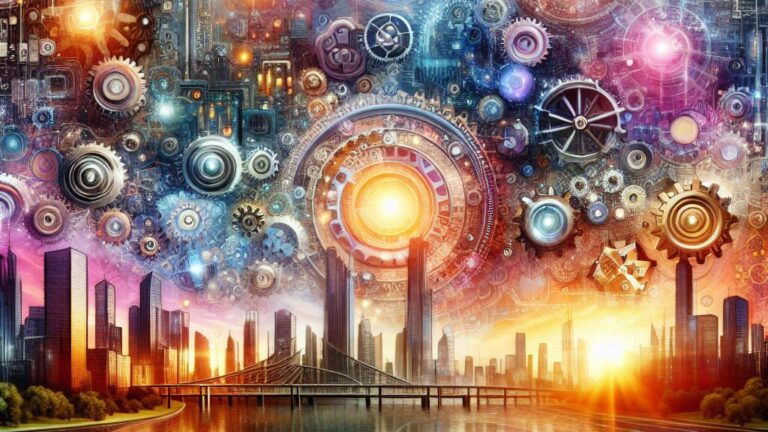Literary Figures and Their Legacy
Literary figures have intricately woven the rich tapestry of culture and thought throughout history. Their works, often steeped in the complexities of their era, strike a resonant chord with audiences that echoes across generations. Think of luminaries like William Shakespeare and Jane Austen—these authors delve into the very fabric of societal norms and human behavior. Their texts transcend mere entertainment; they emerge as incisive critiques that illuminate our understanding of the world, shaping everything from language to social values.
But there’s more! The legacy left by these wordsmiths ripples outward, inspiring a legion of creators who follow in their footsteps. Modern literature is deeply indebted to those foundational styles and themes crafted by earlier masters. Just gaze upon the vibrant dynamism found within literary movements like Romanticism and Modernism! Here lies an exhilarating showcase of how writers have dynamically engaged with—and responded to—the shifting currents of society around them. This perpetual dialogue between what was and what is not only cements their relevance but also beckons us toward ever-evolving interpretations of their ideas and narratives.
Changing Perspectives Through Literature
Literature, that wondrous tapestry of human thought and emotion, possesses an extraordinary knack for mirroring societal values while simultaneously challenging the status quo. Within its pages, diverse characters spring to life, each narrating their own tales—a kaleidoscope of experiences that often force readers into a dance with their own beliefs and those of others around them. This intricate bond weaves empathy into the very fabric of our understanding, nudging individuals to reassess entrenched prejudices and convictions. Think about it: authors like Harper Lee and George Orwell wielded their pens not merely for amusement but as sharp instruments for provoking critical introspection on pressing matters such as racial injustice or the dark shadows cast by totalitarian regimes.
With every literary movement comes a fresh wave of perspectives—each one potentially igniting profound societal transformations. The Harlem Renaissance unfurled a vibrant chorus of African American voices, articulating both struggle and aspiration in ways that irrevocably shifted cultural paradigms. Likewise, feminist literature has boldly reimagined conversations around gender roles; it invites readers to confront stark realities regarding equality and autonomy—issues that demand attention even today. These powerful narratives underscore storytelling’s remarkable capacity—not just to entertain but also to mold public discourse and inspire meaningful change in our world.
| Literary Movement | Key Themes | Notable Authors | Impact on Society |
|---|---|---|---|
| Harlem Renaissance | Racial identity, cultural pride | Langston Hughes, Zora Neale Hurston | Shaped the cultural landscape for African American artists and writers |
| Feminist Literature | Gender equality, women’s rights | Virginia Woolf, Margaret Atwood | Challenged traditional gender roles and sparked global discussions about women’s autonomy |
| Beat Generation | Counterculture, rebellion against societal norms | Jack Kerouac, Allen Ginsberg | Influenced attitudes towards sexuality, race, and rebellion in 20th-century society |
| Postcolonial Literature | Colonialism, identity, and cultural hybridity | Chinua Achebe, Salman Rushdie | Highlighted the effects of colonialism on personal and national identities |
Innovations by Inventors
Throughout the annals of history, inventors have wielded an outsized influence on both technology and society’s evolution. Their ingenious creations frequently emerged in response to distinct needs or formidable challenges, sparking advancements that fundamentally altered how people live and work. Consider the steam engine—an innovation that not only revolutionized transportation but also redefined entire industries. And then there’s the electric light bulb, a beacon of transformation illuminating daily existence; each invention leaves behind indelible marks on economic growth and societal change.
Yet, the narrative surrounding inventors transcends mere utility; their breakthroughs often ignite inspiration for future generations, propelling further innovations into existence. Visionaries like Nikola Tesla and Thomas Edison didn’t just tinker with wires—they laid down the very foundations of modern electrical systems and communication technologies we now take for granted. As fresh ideas emerge from the fertile ground of creativity, this relentless cycle of invention persists—a vibrant dance between imagination and necessity—fueling human progress through time’s ever-turning wheel.
Advancements that Defined Eras
The industrial revolution—ah, what a momentous juncture in the tapestry of history! It wasn’t just a mere shift; it was an upheaval that redefined economies and societies alike. Picture this: the steam engine chugging to life, mechanized looms whirring away—such innovations didn’t just tweak industries; they catapulted efficiency into uncharted territories. Factories sprang forth like mushrooms after rain, becoming bustling hubs of mass production. Workers flocked to cities in droves, lured by the promise of employment, as urban landscapes transformed overnight. This seismic change not only ignited economic growth but also sculpted society’s very fabric, giving rise to new social classes that jostled for place and power.
Meanwhile, in the sphere of communication—a realm equally ripe for transformation—the telegraph blazed onto the scene, soon followed by its more sophisticated cousin, the telephone. These marvels shrank distances with breathtaking speed; rapid exchanges became not just possible but expected! The world grew smaller yet infinitely more connected. The ramifications? Oh, they rippled far beyond simple convenience—business practices were rewritten; political landscapes shifted dramatically; daily life morphed into something altogether different—all thanks to these groundbreaking inventions that etched their legacy onto human interaction forevermore.
Exploration and Discovery
Throughout the tapestry of history, the flames of exploration and discovery have ignited human advancement and sparked an insatiable curiosity. Brave pioneers set sail into the abyss of uncharted territories, peeling back the layers to reveal new lands and vibrant cultures that had long remained hidden. This ceaseless quest for knowledge didn’t merely scratch the surface; it carved out significant trade routes, weaving a complex web of interactions among diverse civilizations. The Age of Exploration—a riveting chapter featuring larger-than-life figures like Christopher Columbus and Ferdinand Magellan—dramatically redrew not just maps but also reshaped global trade networks, leaving indelible marks on economic systems and cultural exchanges.
But wait! There’s more! Scientific exploration emerged as another formidable force in broadening humanity’s grasp on existence itself. Expeditions braved icy poles, plunged into unfathomable depths of oceans, and gazed skyward with telescopes to unlock secrets held tight by geography, biology, and even the cosmos. Each journey was fraught with daunting challenges: fierce storms roared through treacherous weather; uncharted waters loomed ominously beneath fragile vessels—but these trials only fueled a relentless desire to push past known boundaries and delve deeper into life’s enigmas both terrestrial and celestial. The fruits borne from these daring endeavors were nothing short of revolutionary—not solely geographic insights but also groundbreaking innovations in navigation techniques and cartographic artistry that laid down blueprints for modern-day exploration itself!
Expanding the Boundaries of Knowledge
Throughout the annals of history, intrepid explorers have relentlessly pushed beyond the boundaries of the known world, embarking on audacious journeys into realms yet untouched, revealing vibrant civilizations and rich cultures hidden from view. Luminaries like Marco Polo and Christopher Columbus blazed trails that not only broadened our maps but also reshaped global trade routes and cultural interchanges. Their epic voyages ignited a fire in others’ hearts—a ripple effect that spurred further explorations and deepened humanity’s collective understanding of this vast planet we inhabit. The seismic shifts in geographic knowledge reverberated through societies, altering power balances and economic frameworks as nations scrambled to seize upon fresh resources and burgeoning opportunities.
But it wasn’t merely geography that underwent transformation; the relentless pursuit of wisdom across various scientific domains has profoundly influenced human comprehension itself. Visionaries such as Galileo and Newton peeled back layers of cosmic enigma with their revolutionary observations and theories—challenging entrenched beliefs while laying down foundational stones for modern science’s towering edifice. This unyielding thirst for knowledge has propelled generations to question norms, ignite innovation, and chase elusive answers—cultivating an atmosphere where intellectual curiosity flourishes spectacularly, culminating in groundbreaking advancements that chart the course of human progress itself.
Philosophers and Their Ideas
Ideas are not mere whispers in the wind; they sculpt entire societies and mold the very fabric of individual thought. Take, for instance, the intellectual odyssey paved by giants like Socrates, Kant, and Nietzsche—philosophers whose legacies echo through time. Socrates ignited a flame for critical thinking with his relentless pursuit of an examined life, laying down ethical bedrock that would support generations to come. Then came Kant, expanding this philosophical tapestry with intricate threads of duty and moral philosophy—his ideas nudging us toward profound reflections on what it means to be responsible citizens in an ever-complex world. And let’s not overlook Nietzsche! He boldly tore at the seams of conventional morality, championing individualism and touting the exhilarating notion of the will to power—a clarion call for self-determination amidst societal constraints.
But oh! The influence doesn’t stop within ivory towers; these philosophical musings seep into our daily lives like ink into paper—shaping political landscapes and fueling social movements alike. The Enlightenment thinkers? They lit torches of democratic ideals and human rights that illuminated pathways for governance anew, forever altering societal blueprints. Meanwhile, utilitarianism pops up as a pragmatic lens through which we assess our actions based on consequences—a framework reflecting an ongoing dialogue that resonates across myriad spheres.
The footprints left by these minds continue to provoke curiosity—their ideas serving as both compass and battleground in contemporary debates swirling around ethics, politics—and so much more! As society grapples with its tangled web of complex moral dilemmas today, their philosophies remain vital signposts guiding our quest for understanding amid chaos.
Influencing Thought and Ethics
Philosophers—those intrepid explorers of the human psyche—have wielded substantial influence in sculpting moral principles and ethical frameworks through the tapestry of history. The musings of luminaries like Socrates, Kant, and Nietzsche plunge deep into the very essence of morality, consciousness, and what it means to exist as a human being. Their probing inquiries ignite fundamental questions that resonate with timeless urgency: What constitutes right and wrong? What are our individual duties? How do we chase after a life imbued with meaning? These rich discussions have left indelible marks that ripple outward, influencing education systems, legal structures, and personal belief landscapes alike—all while laying down a robust foundation for the ceaseless debates surrounding ethics that echo in today’s society.
But oh! The reach of philosophical thought stretches far beyond dusty tomes tucked away in scholarly halls; it infiltrates our everyday lives! Concepts like justice, freedom, and virtue—meticulously articulated by these grand thinkers—compel us to engage in introspection about our own values and actions. In this contemporary milieu rife with technological quandaries and environmental crises, we often find ourselves grappling with ethical dilemmas rooted deeply in these longstanding philosophical ideas. This ongoing dialogue concerning morality not only fosters critical thinking but also stirs within us a sense of personal accountability—a clarion call urging society to ponder profoundly what it truly means to live well amidst an ever-shifting landscape.
- Philosophers challenge us to reconsider our perspectives on morality and ethics.
- Engaging with philosophical texts promotes critical thinking skills and ethical reasoning.
- Ethical frameworks shape professional standards and practices in various fields.
- Discussions of justice influence policy-making and social justice movements.
- The relevance of philosophical inquiry in navigating modern dilemmas highlights its enduring value.
- Reflecting on philosophical principles encourages personal growth and moral development.
- Philosophical debates remain crucial for addressing contemporary issues like technology and sustainability.
Military Leaders and Strategy
Throughout the annals of history, military leaders have wielded an extraordinary influence, deftly molding the trajectories of nations and conflicts alike. Their cunning strategies often swung the pendulum of war, dictating not just fleeting triumphs but also forging long-lasting shifts in territorial claims, political landscapes, and societal structures. Take figures like Sun Tzu and Napoleon Bonaparte—these masterminds didn’t merely play their times; they redefined them with revolutionary tactics that echo through ages. The ramifications of their campaigns linger still, fueling the studies of strategists and historians who recognize that leadership is a cornerstone in the theater of warfare.
Now consider this: how does one gauge the prowess of a military leader? It’s often about their remarkable ability to pivot amidst chaos on the battlefield—a skill as essential from ancient clashes to contemporary skirmishes. Leaders such as Joan of Arc and Dwight D. Eisenhower are prime examples; they understood that morale was just as vital as strategy itself. Through strategic alliances forged under pressure, these icons rallied their troops against formidable foes. Their choices rippled beyond mere battlefields—they sculpted future doctrines in military thought itself—illuminating the intricate dance between leadership dynamics, tactical innovation, and the relentless evolution woven into armed conflict’s fabric.
Defining Conflicts and Their Outcomes
Throughout history, military leaders have wielded astonishing power, their influence often stretching beyond the immediate chaos of conflict to reshape nations themselves. The strategies they employed and the decisions they made in the heat of battle didn’t merely sway outcomes; they reverberated through time, leaving indelible marks on political landscapes for years—if not centuries—to come. Take Napoleon Bonaparte or Alexander the Great, for instance; each exemplifies how a single mind’s strategic brilliance can redirect the very currents of history itself.
Yet, it’s crucial to understand that victories and defeats are but mere markers on a far more complex tapestry. Each military engagement ripples outwards, instigating seismic shifts in power dynamics and societal structures that echo through generations. Consider Sun Tzu: his timeless writings continue to permeate modern thought on strategy, revealing that grasping the art of war transcends mere battlefield tactics. Through their profound insights and actions, these leaders have etched their legacies not only into tactical doctrines but also into ethical debates surrounding warfare—a duality that continues to provoke thought today.
Conclusion
The tapestry of human achievement is woven with the vibrant threads of historical figures whose influence spans a multitude of domains. Their contributions pulse through time, resonating in our understanding of literature, science, philosophy, and military strategy. Delving into their legacies unearths invaluable insights into the intricate paths that have sculpted contemporary society. Each figure unfolds a story — a unique narrative that not only mirrors their era but also casts ripples across our current and future endeavors.
Recognizing these varied contributions enriches our appreciation for history in all its complexity. It’s a vivid reminder that progress often germinates from the audacious ideas and daring actions of individuals ready to defy conventions, ignite innovation, and venture into uncharted territories. Viewed through this multifaceted lens, we begin to fathom the tangled web of human development while acknowledging how imperative it is to learn from our past as we navigate today’s challenges and those yet on the horizon.
FAQS
What are some examples of literary figures who have had a lasting impact on society?
Ah, the pantheon of literary titans! Think William Shakespeare with his eloquent quill, Jane Austen weaving tales that dissect social mores, and Mark Twain—an astute observer whose wit slices through the fabric of American life. Their works resonate like echoes through time, intricately shaping language’s rhythms, cultural landscapes, and societal conventions.
How can literature change our perspectives on historical events?
Literature acts as a prism refracting light onto historical narratives; it breathes life into dusty pages. By humanizing struggles and triumphs alike, unveiling myriad viewpoints often overlooked, it dares to challenge dominant stories—ushering in fresh interpretations that compel us to reconsider what we thought we knew.
What innovations do historical inventors typically contribute to society?
Oh yes! The visionaries—the likes of Thomas Edison flickering bulbs into existence or Nikola Tesla electrifying our imaginations! These pioneers birthed inventions so transformative they reshaped technology’s very core. Communication leapt forward, transportation evolved dramatically—all stitching together the tapestry of modern existence.
How have explorers expanded our understanding of the world?
Picture this—a ragtag band braving uncharted waters! Explorers like Christopher Columbus or Ferdinand Magellan sailed forth not just to map lands but to unveil cultures hitherto unknown. They forged new trade routes and ignited exchanges that danced across continents—each voyage expanding humanity’s collective consciousness about this vast globe we inhabit.
What role do philosophers play in shaping ethical thought?
Philosophers stand at the crossroads of inquiry and ethics; think Socrates prodding with relentless questions or Immanuel Kant laying down moral imperatives. Friedrich Nietzsche rattles cages with bold proclamations about morality’s constructs. Through their probing minds emerge frameworks for justice and virtue—a rich dialogue that nurtures critical thought across generations.
How do military leaders impact the outcomes of conflicts?
In times when swords clash and empires rise or fall—there stand military leaders like Sun Tzu crafting strategies shrouded in cunning wisdom or Napoleon Bonaparte wielding influence over armies as if conducting an orchestra! Their decisions pivot battles’ fates while echoing through political arenas long after dust settles from conflict’s chaos.
Why is it important to study the impact of historical figures?
Delving into these legacies offers more than mere history lessons—it reveals how ideas took root and actions blossomed into movements that shaped societies anew. Each figure serves as a lens for contemporary dilemmas providing context-rich insights ripe for reflection as we navigate today’s ever-evolving landscape toward tomorrow.







